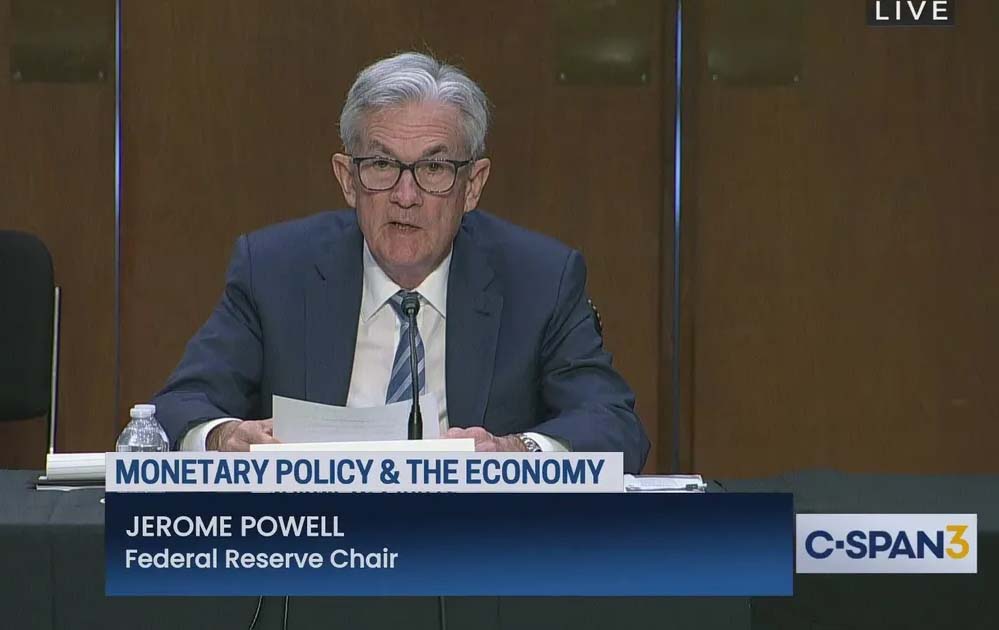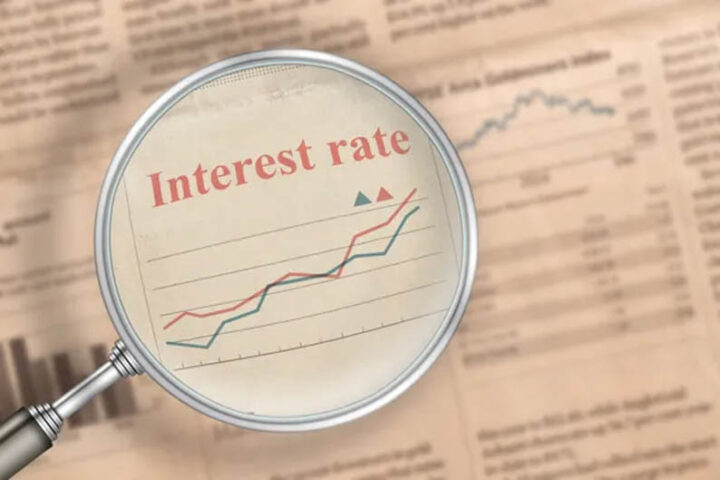Federal Reserve Chair Jerome Powell told lawmakers on Tuesday that it will likely raise interest rates more than expected amid strong economic data and that it is prepared to move more aggressively if the “totality” of fresh reports suggests stronger measures are needed to tame inflation.
In a hearing before the Senate Banking Committee, Powell said: “The latest economic data have come in stronger than expected, which suggests that the ultimate level of interest rates is likely to be higher than previously anticipated.”
“If the totality of the data were to indicate that faster tightening is warranted, we would be prepared to increase the pace of rate hikes,” he said.
The US central bank chief ’s high-stakes appearance before Congress should act as a reminder to investors to consider other metrics besides inflation and interest rates, said the CEO and founder of leading financial advisory and fintech deVere Group.
“Investors were looking for clues from Powell as to whether he favours another 25-basis point rate increase at the next Federal Open Market Committee meeting, or if he might consider a heftier 50-basis point increase,” said Nigel Green.
“The Fed chair was perhaps more hawkish than many analysts had expected, and stocks tumbled after he warned that interest rates could remain higher for longer.”
Green added that despite the hawkish tone, when in the decision-making process, “I remind investors that even though there’s still a way to go, we’re likely closer than we have been to getting back to the central bank’s target and would urge them to focus more on earnings and margin than on inflation and interest rate news.
“If you’re serious about building wealth, you should be looking at sectors and companies that can maintain margin despite inflation and interest rate hikes,” he said.
Margin often overlooked
Green explained that margin is an often overlooked, yet important metric for investors to consider when evaluating investment opportunities. It can provide insight into the company’s profitability, efficiency, and competitive advantages, and can impact investor sentiment and stock prices.
“In this environment of higher rates for longer than had previously been anticipated, some companies are going to find it difficult to maintain margin and, as we have recently seen, are failing to report earnings as had been expected.
“If costs are going up, firms can’t maintain margin, so that company is unlikely to be a good investment until things change,” the deVere CEO noted earlier.
He identified four key sectors that he expects to be resilient in this current environment.
“We’re looking at sectors that can maintain margin, despite inflation and interest rate hikes. These include healthcare, luxury goods, energy and agriculture.”
Healthcare in demand
Green said healthcare is a robust sector as people will always need to stay healthy – this has come into focus more than ever since the pandemic.
Also, despite wider market volatility, there’s strong earnings potential due to ageing populations and other demographic changes. Plus, healthcare is becoming increasingly tech-driven, which offers fresh opportunities.
He added that luxury goods can maintain margin due to the inherent aspirational ‘elite and exclusive’ aspect of the sector.
“We’ll look at energy because there’s a shortage of energy in the world right now.
“Agriculture is another one as populations in emerging markets around the world are eating more meat. As they eat more meat, there needs to be more grain produced.”
Following Powell’s appearance on Capitol Hill on Tuesday, Green concluded that, “investors shouldn’t dismiss the Fed’s signals about future rate hikes, but they must also consider other investment metrics too, in particular, margin.”








